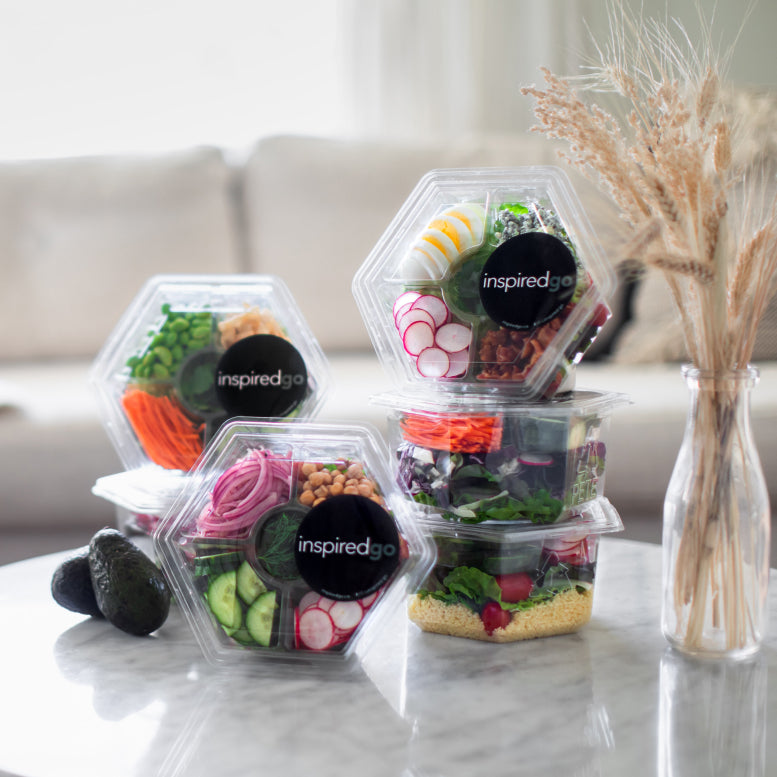Is It Expensive To Eat Vegan?
Table of Contents
1. Understanding the Cost of a Vegan Diet
2. What Do I Eat on a Vegan Diet?
3. How Are Vegan Meal Delivery Menus Designed?
4. Why Is a Healthy Diet Important?
1. Understanding the Cost of a Vegan Diet
Contrary to common belief, choosing a vegan diet doesn't necessarily imply a costly grocery bill. The cost of any diet, including a vegan one, is primarily determined by the choices you make. Opting for whole foods like fruits, vegetables, legumes, grains, and nuts, which are the foundation of a vegan diet, can be quite affordable. These plant-based staples are often less expensive than meat and dairy products. However, the cost can increase if you frequently choose specialty vegan items such as vegan cheeses, meat substitutes, and other processed vegan foods. Additionally, the cost can also fluctuate depending on whether you choose organic, locally-sourced, or imported produce. Remember, a well-planned vegan diet can be both nutritious and budget-friendly. It's all about making smart food choices that align with your budget and nutritional needs.
Order fresh salads today →


2. What Do I Eat on a Vegan Diet?
A vegan diet offers a wide variety of plant-based foods, far beyond simple salads or steamed vegetables. Staples of vegan meals include legumes, whole grains, nuts, seeds, fruits, and vegetables, which together provide balanced macronutrients and essential vitamins. Protein sources include chickpeas, lentils, tofu, tempeh, and seitan, while healthy fats come from avocados, nuts, and seeds. Vegan meal delivery services take these ingredients and transform them into flavorful dishes such as vegan curries, grain bowls, pasta, and tacos. These services also ensure variety by offering global-inspired flavors and seasonal produce, keeping meals exciting and satisfying. With vegan meal delivery, customers can enjoy a diverse range of delicious, plant-based meals without repetitive menu choices or time-consuming preparation.
Choose your salads and schedule delivery →
3. How Are Vegan Meal Delivery Menus Designed?
Vegan meal delivery menus are carefully crafted to offer both variety and balanced nutrition. Professional chefs design recipes that incorporate a mix of fresh vegetables, whole grains, and plant-based proteins to ensure every meal is satisfying and nutritionally complete. Seasonal produce often plays a key role, enhancing both flavor and nutrient density. Menus also frequently draw inspiration from global cuisines, introducing dishes such as vegan curries, pasta, and tacos. Additionally, options are available for specific dietary needs, including gluten-free, high-protein, or low-carb preferences. By rotating menus regularly, vegan meal delivery services prevent menu fatigue while ensuring customers enjoy creative, delicious meals every day.
Get fresh salads and snacks delivered →
4. Why Is a Healthy Diet Important?
Inspired Go believes that a healthy diet is the cornerstone of long-term well-being, and their vegan meal delivery service supports customers in achieving a balanced lifestyle. Every meal is intentionally crafted to provide a balance of macronutrients, including protein, fiber, and healthy fats, along with essential vitamins and minerals. Inspired Go's focus on fresh, locally sourced ingredients ensures maximum nutrient retention and vibrant flavors. Beyond physical health, a balanced diet contributes to improved energy levels, enhanced mental clarity, and better emotional well-being. By offering pre-portioned, ready-to-eat vegan meals, Inspired Go simplifies the challenge of maintaining a healthy diet amid busy schedules. With Inspired Go, customers can enjoy the peace of mind that comes from knowing every meal supports their overall health and vitality.
Try our fresh, ready-to-eat salads →
Frequently Asked Questions
The key difference between vegan and vegetarian diets lies in the exclusion of animal products. Vegetarians avoid meat, poultry, and fish but may consume animal-derived products like eggs, dairy, or honey. Vegans, on the other hand, exclude all animal products, focusing solely on plant-based foods. Veganism is often a lifestyle choice, avoiding animal products in all forms, including clothing and cosmetics.
A vegan diet consists entirely of plant-based foods, including fruits, vegetables, grains, nuts, seeds, and legumes. It excludes all animal-derived products, such as meat, fish, dairy, and eggs. This diet emphasizes nutrient-dense, whole foods, though processed vegan alternatives are available. A vegan diet, when well-balanced, supports good health and environmental sustainability, making it popular for ethical, health, and ecological reasons.
Not all vegan diets are gluten-free. While veganism excludes animal products, gluten is a protein found in wheat, barley, and rye, which are plant-based and commonly included in vegan meals. To maintain a vegan and gluten-free diet, focus on naturally gluten-free foods like fruits, vegetables, rice, quinoa, and gluten-free grains. Always check labels for hidden gluten in processed vegan foods.
On a vegan diet, you can enjoy a wide variety of plant-based foods, including fruits, vegetables, legumes, nuts, seeds, whole grains, and plant-based dairy alternatives. Popular vegan dishes include stir-fries, salads, grain bowls, soups, and curries. Incorporating fortified foods or supplements ensures you meet nutrient needs like B12, iron, and omega-3s, making the diet balanced and enjoyable.
A vegan diet can be very healthy when balanced and diverse. It’s rich in fiber, vitamins, and antioxidants, while being lower in saturated fat and cholesterol. These factors contribute to better heart health, weight management, and reduced risk of chronic diseases. However, careful planning is essential to ensure adequate intake of nutrients like vitamin B12, iron, and protein for overall health.

